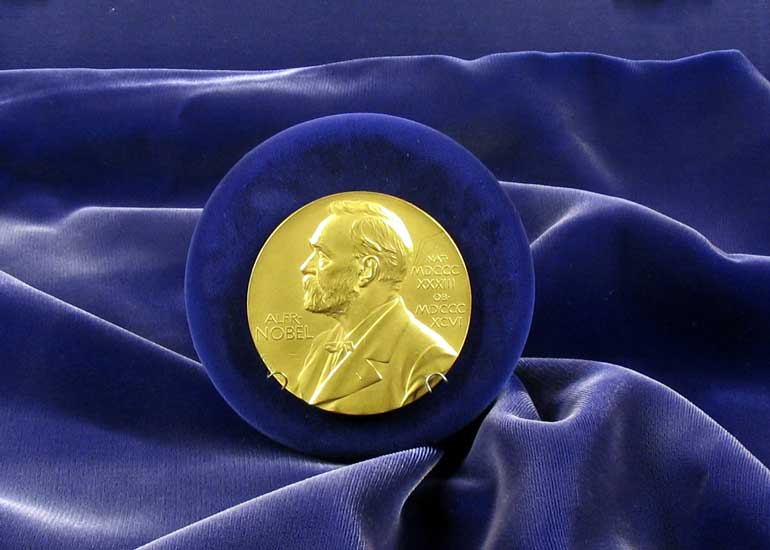
Thomson Reuters SmartWatch’s Nobel Prize predictions have been half right over the past five years. Photo by Tim Ereneta.
Nick Jean

Margaret Atwood. Photo by
Thomson River University.
Gamblers would need a Lady Oracle on their side to pick Margaret Atwood to win The Nobel Prize for Literature. British gambling site Ladbrokes is giving Atwood 33:1 odds to join the likes of Steinbeck, Hemingway and Faulkner.
Picking who will win the Literature and Peace Nobels is in general a crapshoot, but predicting the other four categories – Physiology and Medicine, Chemistry, Physics and Economics – has some science to it.
For 12 years Thomson Reuters ScienceWatch has been correctly predicting winners using a method of citation analysis. Using their database of “some 12,000 journals,” ScienceWatch manager Christopher King told Humber News, “You can make a compelling case that names that recur (in citations) … are being judged in the scientific community as significant.
“That’s sort of the starting point for trying to predict what the Nobel committee recognize as the significant advances and discoveries that have really stimulated other research.”
Using this analysis and a healthy dose of “qualitative judgments,” ScienceWatch picks the three areas of research in each category and up to three people for each area they consider worthy of receiving a Nobel.
In 2011, they were perfect, picking nine of nine winners. Over the past five years, the eventual winners have been among ScienceWatch’s so-called Citation Laureates 50 per cent of the time (24 of 48 Nobel winners), an impressive feat given the Nobel committees choose the winners from a pool of “about 250 to 350” nominees.
That gives this year’s crop of Citation Laureates good odds of taking home the prizes and their $1 million-plus cash awards.
Despite this level of success, co-founder of the Observatory of Science and technology at Université du Québec à Montréal Yves Gingras discounts citation analysis as a means of predicting the Nobel Prizes.
“The difficulty is linked to the fact that now we live in a time of massification of research,” Gingras told Humber News.
Stephen W. Scherer, senior scientist and director at The Hospital for Sick Children’s Centre for Applied Genomics, is the lone Canadian amongst ScienceWatch’s honourees this year.

John O’Keefe. Photo by Suzanne Plunkett/Reuters.
Unfortunately for Scherer and his colleagues on the Physiology and Medicine list, ScienceWatch has thus far gone zero for three.
The Nobel Committee awarded the prize to a trio not represented on ScienceWatch’s list.
American John O’Keefe (who received his doctorate from Montreal’s McGill University) of University College, London, United Kingdom, and the Norwegian husband-and-wife duo of May-Britt and Edvard I. Moser of the Centre for Neural Computation, Trondheim, Norway, will receive the award at a ceremony in December “for their discoveries of cells that constitute a positioning system in the brain.”
The remaining five categories’ recipients will be announced one per day for the rest of the week starting with Physics tomorrow. Chemistry and Literature follow Wednesday and Thursday with The Peace Prize capping everything off on Friday.

